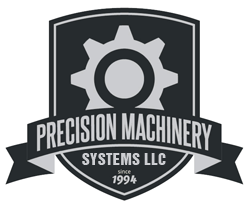5 Effective Tips for Choosing the Right Trash Compactor for Your Business Needs
In the ever-evolving landscape of waste management, businesses are increasingly turning to technology to optimize their processes and reduce operational costs. Among these technologies, The Trash Compactor stands out as a crucial investment for companies looking to enhance their waste disposal efficiency. According to a recent report by the Environmental Protection Agency (EPA), businesses that invest in waste compaction technologies can minimize waste volume by up to 75%, significantly lowering disposal fees and reducing their carbon footprint. Additionally, a study conducted by the Waste Equipment Technology Association (WETA) revealed that using a trash compactor can lead to annual savings of thousands of dollars, as it allows companies to maximize the use of their waste containers and decrease collection frequency. As businesses strive to operate sustainably while managing costs, understanding how to choose the right trash compactor tailored to their specific needs becomes essential.

Understanding the Different Types of Trash Compactors for Commercial Use
When selecting the right trash compactor for your business, it's essential to understand the different types available for commercial use. There are several categories of trash compactors, including vertical, horizontal, and self-contained compactors. Each type serves a specific purpose and is tailored to various waste management needs. According to a recent market research study, the global trash chute market is projected to grow significantly, with a demand driven by the need for efficient waste disposal solutions in urban settings.
Tip 1: Evaluate your business's waste volume and type before choosing a compactor. For instance, if you manage high volumes of cardboard and plastics, a horizontal compactor may be the most effective option, offering greater capacity and efficiency.
Moreover, it's crucial to consider the space and physical constraints of your facility. As urban waste management continues to evolve, reports indicate a growing emphasis on sustainability and space-saving solutions, highlighting the demand for compactors that integrate seamlessly into limited environments.
Tip 2: Invest in technology features like full bin alerts and remote monitoring to optimize waste management operations. Such advancements are making more efficient use of time and resources, as indicated by insights from industry studies focusing on urban waste management strategies.
Assessing Your Business Volume and Waste Types for Optimal Compaction
When assessing your business volume and waste types for optimal compaction, it’s essential to consider the specific needs of your operation. Analyzing the categories of waste generated—such as organic materials, recyclables, or construction debris—will guide your decision on which trash compactor will best suit your capabilities. For example, if your business produces a high volume of bulky waste, a heavy-duty compactor can help maximize space and reduce collection frequency.
In addition to evaluating waste types, it’s crucial to assess the volume generated daily. Implementing a compaction solution that aligns with your volume can lead to significant cost and space savings. Ensure you select a compactor with adjustable settings if your waste volume fluctuates. For businesses in the construction sector, incorporating sustainable practices such as recycling materials like limestone quarry by-products can further enhance your waste management strategy. This not only helps reduce landfill waste but also supports environmental sustainability goals essential for modern businesses.

Evaluating Energy Efficiency Ratings in Trash Compactors for Cost Savings
When selecting a trash compactor for your business, evaluating energy efficiency ratings is crucial for maximizing cost savings. Energy-efficient models not only reduce electricity bills but also minimize your overall environmental impact. Many compactors come with ENERGY STAR ratings, which signify that they meet strict energy efficiency guidelines. By investing in these qualified units, businesses can lower operational costs while promoting sustainability.
Moreover, it's essential to understand how the energy consumption of a trash compactor can affect your bottom line over time. The initial investment may be higher for energy-efficient models, but the long-term savings on energy costs can outweigh the upfront expenses. For instance, a compactor that operates with lower power consumption will lead to reduced energy expenditures and potentially smaller carbon footprints. Therefore, prioritizing energy efficiency in your selection process not only contributes to savings but also aligns your business with a more sustainable future.
Exploring Advanced Features: Smart Technology and Connectivity Options
When selecting a trash compactor for your business, exploring advanced features such as smart technology and connectivity options can significantly enhance efficiency and convenience. These innovations allow users to integrate their compactor systems into existing digital infrastructures, fostering better waste management practices. For instance, a trash compactor equipped with IoT capabilities can monitor weight levels and send alerts when the bin is nearing capacity, reducing the need for frequent checks and optimizing collection schedules.
Additionally, connectivity options like mobile apps provide users with remote control features and real-time data analytics. This level of accessibility not only streamlines operations but also helps in making informed decisions regarding waste disposal and recycling. As industries are increasingly leaning towards automation and smart solutions, incorporating such advanced features in waste management tools becomes critical for enhancing operational sustainability and reducing costs. The shift towards these technologies can mirror trends seen in other sectors, where companies are leveraging AI and connectivity to stay competitive and meet the rising demands of their customers.
5 Effective Tips for Choosing the Right Trash Compactor for Your Business Needs - Exploring Advanced Features: Smart Technology and Connectivity Options
| Feature | Description | Benefits | Considerations |
|---|---|---|---|
| Smart Technology | Compactors equipped with sensors to monitor fill levels. | Improved efficiency in waste management and scheduling pickups. | Initial higher cost and potential technical issues. |
| Connectivity Options | Wi-Fi or cellular capabilities for remote monitoring. | Convenient real-time tracking and management from devices. | Need for reliable internet connection and potential security concerns. |
| Size and Capacity | Different sizes for varied business waste volume. | Optimal space utilization and frequency of disposal. | Risk of choosing a unit that is too small or too large. |
| Energy Efficiency | Models designed to use less electricity while compacting. | Cost savings on energy bills and reduced environmental impact. | May have a higher upfront cost but pays off over time. |
| Durability | Heavy-duty construction materials for prolonged use. | Reduced maintenance costs and longer lifespan. | Weight may limit mobility and require more floor space. |
Budgeting for Initial Investment vs. Long-Term Savings in Waste Management Solutions
 When choosing a trash compactor for your business, it’s essential to balance your initial investment with potential long-term savings in waste management. While the upfront costs of a high-quality compactor may seem daunting, the financial benefits can be substantial over time. A robust compactor can significantly reduce the volume of waste, allowing for less frequent pick-ups and lower disposal costs. This can lead to significant savings, especially for businesses generating large amounts of waste.
When choosing a trash compactor for your business, it’s essential to balance your initial investment with potential long-term savings in waste management. While the upfront costs of a high-quality compactor may seem daunting, the financial benefits can be substantial over time. A robust compactor can significantly reduce the volume of waste, allowing for less frequent pick-ups and lower disposal costs. This can lead to significant savings, especially for businesses generating large amounts of waste.
Additionally, consider the energy efficiency and durability of the compactor you select. Investing in an energy-efficient model may require a higher initial expenditure, but it can lead to reduced operational costs and a smaller carbon footprint in the long run. Furthermore, durable machines often require less maintenance and replacement, which contributes to overall cost savings. By carefully weighing your options and considering both the immediate expenses and long-term benefits, you can make a well-informed decision that aligns with your business’s waste management goals.
Related Posts
-
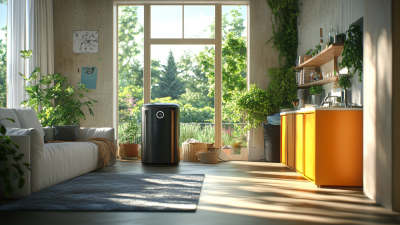
Eco Friendly Waste Solutions for Your Home without Using Trash Compactors
-
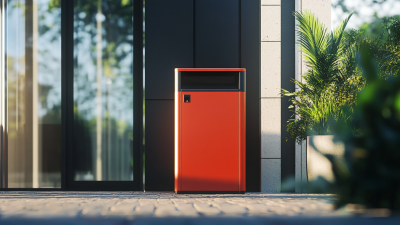
Essential Techniques for Sourcing Automatic Trash Compactors in a Competitive Market
-
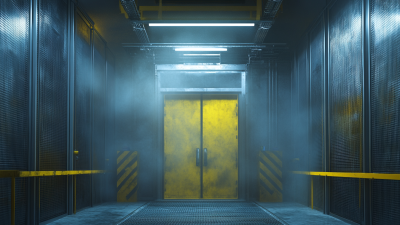
Setting the Benchmark for In Home Trash Compactors in Global Manufacturing Standards
-
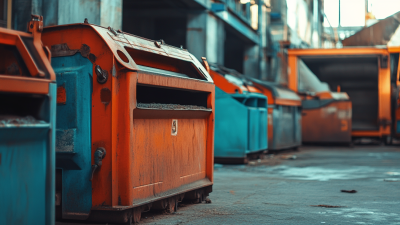
Essential Compliance Standards for Importing Commercial Compactors Globally
-
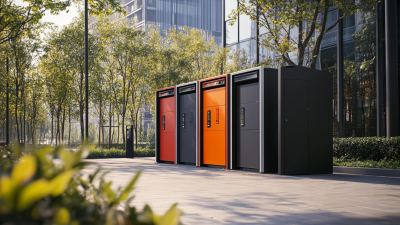
Exploring Unique Options for Efficient Waste Management with Vertical Trash Compactors
-
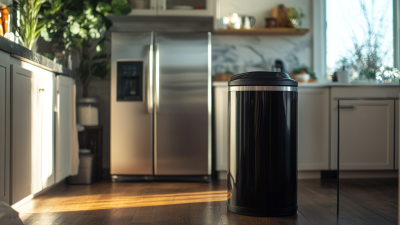
The Ultimate Guide to Choosing the Right In Home Trash Compactor for Your Needs
